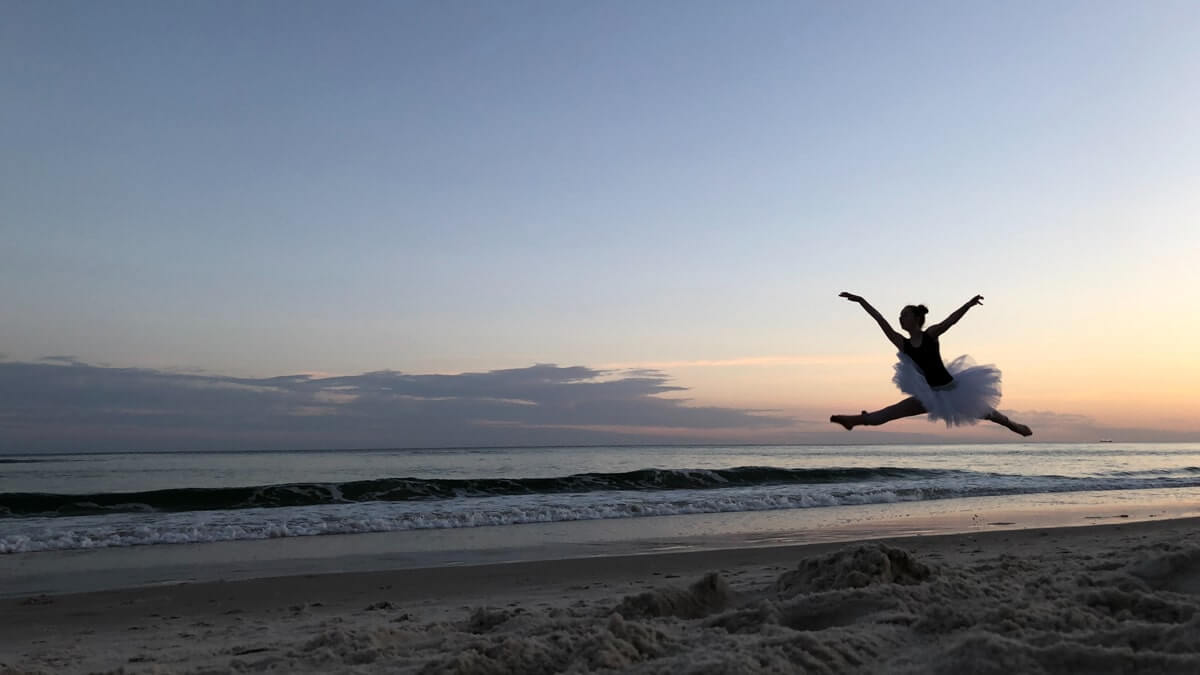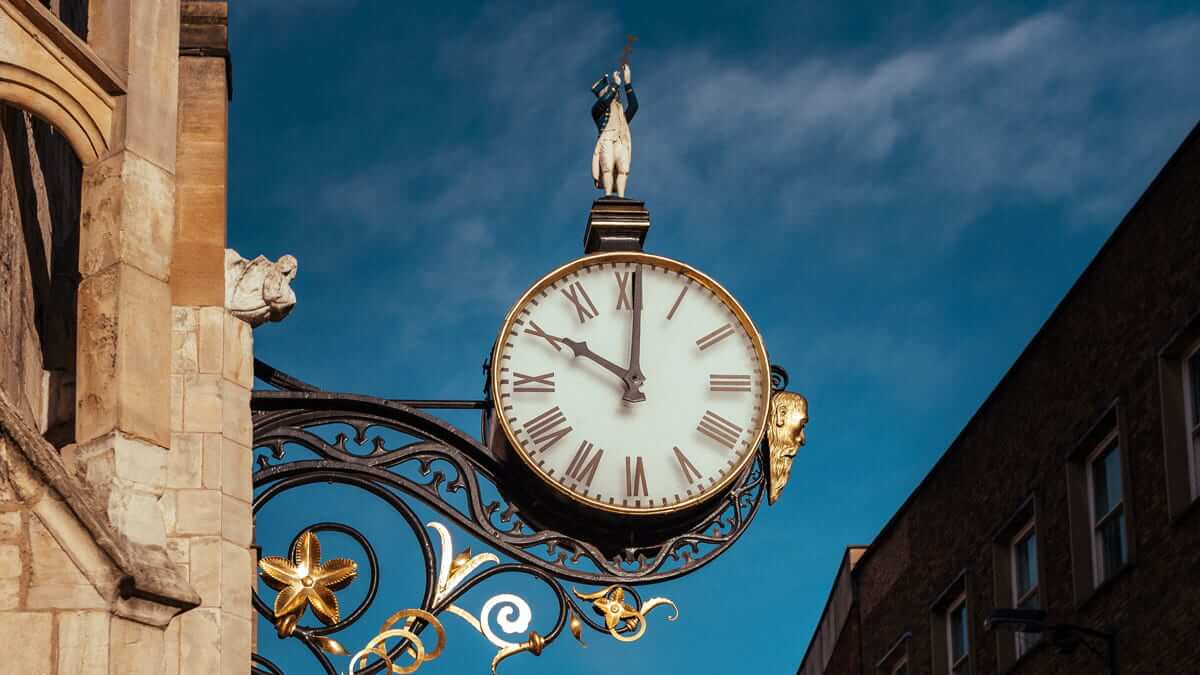The Journey is the Destination

Goals are a common way of moving toward our pursuits. Whether those goals are financial, career-oriented, relationship focused, physical, emotional or spiritual, there is so much information on the topic of how to create them, work toward them, and stay motivated to achieve them. Everywhere we look, in books, magazine articles, on the internet, in motivational speeches – we seek the next best way to get the next best thing or create the next best self.
So, what’s the problem?
Goals matter – they help us to focus on what is important to us and guide our life direction. Without goals our dreams might float in a nebulous future of ‘someday’ and our lives would be guided by the whims of randomness, chance, and luck. As Lewis Carrol wrote in Alice in Wonderland, when Alice asks “Would you tell me, please, which way I ought to go from here?” “That depends a good deal on where you want to get to,” said the Cat. “I don’t much care where—” said Alice. “Then it doesn’t matter which way you go,” said the Cat. It is hard to find the way when you don’t know your destination. Human beings are not known for their love of the unknown or their ease with ambiguity, so in order to feel some semblance of agency over our lives, we learn to set goals and use acronyms like SMART to guide us in the best ways to achieve our goals.

We pursue things and experiences in a hedonistic or materialistic chase of something new and shiny that can distract us. Sometimes we don’t lose ourselves in distraction but instead, try to engage in goal-oriented pursuits. When we do engage, often anxiety increases and in response, we might use procrastination, delinquency, withdrawal, self-doubt, and cynicism to keep us ‘safe’ from feeling that anxiety. We don’t notice that in the long run those defences actually keep us stuck in the same habitual cycles. We remain perpetually afraid, stuck, confused and struggling to figure the way out.
The Unconscious
What we might not be aware of is that we are still being directed by goals – they are just unconscious ones.
As the philosopher, Alain de Botton, notes “The chief enemy of good decisions is a lack of sufficient perspectives on a problem.” There is an unconscious paradigm that is directing a lot of our choices in life, the way we see the world and ourselves in it, how we are in relationship, what we notice or focus on, and how we move toward our goals freely or freeze at the threshold of opportunity.
The unconscious mind is a powerful force that directs our thoughts, feelings, actions, and life. Rooted in the unconscious are beliefs that either support or sabotage us. These beliefs are so deeply ingrained that we are not consciously aware of them. They become the internal representations of how we perceive the world, what we assume to be true, the values we live by, the fears that bind us and the way we relate to life and everything in it. One of the most common beliefs I come across in my counselling work is “I’m not good enough”. That one unconscious belief can play havoc with most of our goals.
The foundation of who we are and how we live is built on beliefs. These beliefs are acquired from our culture and heritage, from our family system, from events that happened to us early in our childhood and developed as a result of our life experiences. For example, if as a child we were often neglected by our caregivers, one of the unconscious beliefs we may carry might be that our needs don’t matter, or that we are undeserving of being considered. We use that unconscious belief as a lens to view ourselves and the world through and when we strive toward a conscious goal such as “I want to feel considered in my relationships” we are potentially unaware that the unconscious goal (I’m unworthy of being considered) is already fully engaged. If a conflict happens between the conscious and the subconscious mind the later will potentially win because 95 percent of our life is derived from our subconscious programming.
Bypassing Subconscious Programming

By focusing attention on the experiential state as the goal, we experience the state throughout our life – not only when we lose weight or make a million. It is not the actual ‘thing’ we want – but the experience we believe that thing can bring us. Set your intention to notice … to be present to your experience. Every time you feel your experiential goal state, stay with it as long as you can. Breathe into it. Magnify it in your mind, stretch it out as long as you can.
Setting intentional goals that are in alignment with our deepest values, that declare who we want to be in the world, what matters to us, are the easiest goals to achieve and they are the goals that support us to change our self-limiting beliefs. One of my goals is loving-kindness (Metta) – experiencing it for myself and extending it to others. Each day I am guided by the question, “how can I be kind today?” And each day I succeed, in a big or little way, in achieving my goal. It may seem like a little thing, but this aligning with my deeper nature, my intrinsic being-ness is the journey that constantly takes me closer and closer to the destination I seek: Happiness.
Resources
The Journey is the Destination

Goals are a common way of moving toward our pursuits. Whether those goals are financial, career-oriented, relationship focused, physical, emotional or spiritual, there is so much information on the topic of how to create them, work toward them, and stay motivated to achieve them. Everywhere we look, in books, magazine articles, on the internet, in motivational speeches – we seek the next best way to get the next best thing or create the next best self.
So, what’s the problem?
Goals matter – they help us to focus on what is important to us and guide our life direction. Without goals our dreams might float in a nebulous future of ‘someday’ and our lives would be guided by the whims of randomness, chance, and luck. As Lewis Carrol wrote in Alice in Wonderland, when Alice asks “Would you tell me, please, which way I ought to go from here?” “That depends a good deal on where you want to get to,” said the Cat. “I don’t much care where—” said Alice. “Then it doesn’t matter which way you go,” said the Cat. It is hard to find the way when you don’t know your destination. Human beings are not known for their love of the unknown or their ease with ambiguity, so in order to feel some semblance of agency over our lives, we learn to set goals and use acronyms like SMART to guide us in the best ways to achieve our goals.

We pursue things and experiences in a hedonistic or materialistic chase of something new and shiny that can distract us. Sometimes we don’t lose ourselves in distraction but instead, try to engage in goal-oriented pursuits. When we do engage, often anxiety increases and in response, we might use procrastination, delinquency, withdrawal, self-doubt, and cynicism to keep us ‘safe’ from feeling that anxiety. We don’t notice that in the long run those defences actually keep us stuck in the same habitual cycles. We remain perpetually afraid, stuck, confused and struggling to figure the way out.
The Unconscious
What we might not be aware of is that we are still being directed by goals – they are just unconscious ones.
As the philosopher, Alain de Botton, notes “The chief enemy of good decisions is a lack of sufficient perspectives on a problem.” There is an unconscious paradigm that is directing a lot of our choices in life, the way we see the world and ourselves in it, how we are in relationship, what we notice or focus on, and how we move toward our goals freely or freeze at the threshold of opportunity.
The unconscious mind is a powerful force that directs our thoughts, feelings, actions, and life. Rooted in the unconscious are beliefs that either support or sabotage us. These beliefs are so deeply ingrained that we are not consciously aware of them. They become the internal representations of how we perceive the world, what we assume to be true, the values we live by, the fears that bind us and the way we relate to life and everything in it. One of the most common beliefs I come across in my counselling work is “I’m not good enough”. That one unconscious belief can play havoc with most of our goals.
The foundation of who we are and how we live is built on beliefs. These beliefs are acquired from our culture and heritage, from our family system, from events that happened to us early in our childhood and developed as a result of our life experiences. For example, if as a child we were often neglected by our caregivers, one of the unconscious beliefs we may carry might be that our needs don’t matter, or that we are undeserving of being considered. We use that unconscious belief as a lens to view ourselves and the world through and when we strive toward a conscious goal such as “I want to feel considered in my relationships” we are potentially unaware that the unconscious goal (I’m unworthy of being considered) is already fully engaged. If a conflict happens between the conscious and the subconscious mind the later will potentially win because 95 percent of our life is derived from our subconscious programming.
Bypassing Subconscious Programming

By focusing attention on the experiential state as the goal, we experience the state throughout our life – not only when we lose weight or make a million. It is not the actual ‘thing’ we want – but the experience we believe that thing can bring us. Set your intention to notice … to be present to your experience. Every time you feel your experiential goal state, stay with it as long as you can. Breathe into it. Magnify it in your mind, stretch it out as long as you can.
Setting intentional goals that are in alignment with our deepest values, that declare who we want to be in the world, what matters to us, are the easiest goals to achieve and they are the goals that support us to change our self-limiting beliefs. One of my goals is loving-kindness (Metta) – experiencing it for myself and extending it to others. Each day I am guided by the question, “how can I be kind today?” And each day I succeed, in a big or little way, in achieving my goal. It may seem like a little thing, but this aligning with my deeper nature, my intrinsic being-ness is the journey that constantly takes me closer and closer to the destination I seek: Happiness.



Leave A Comment